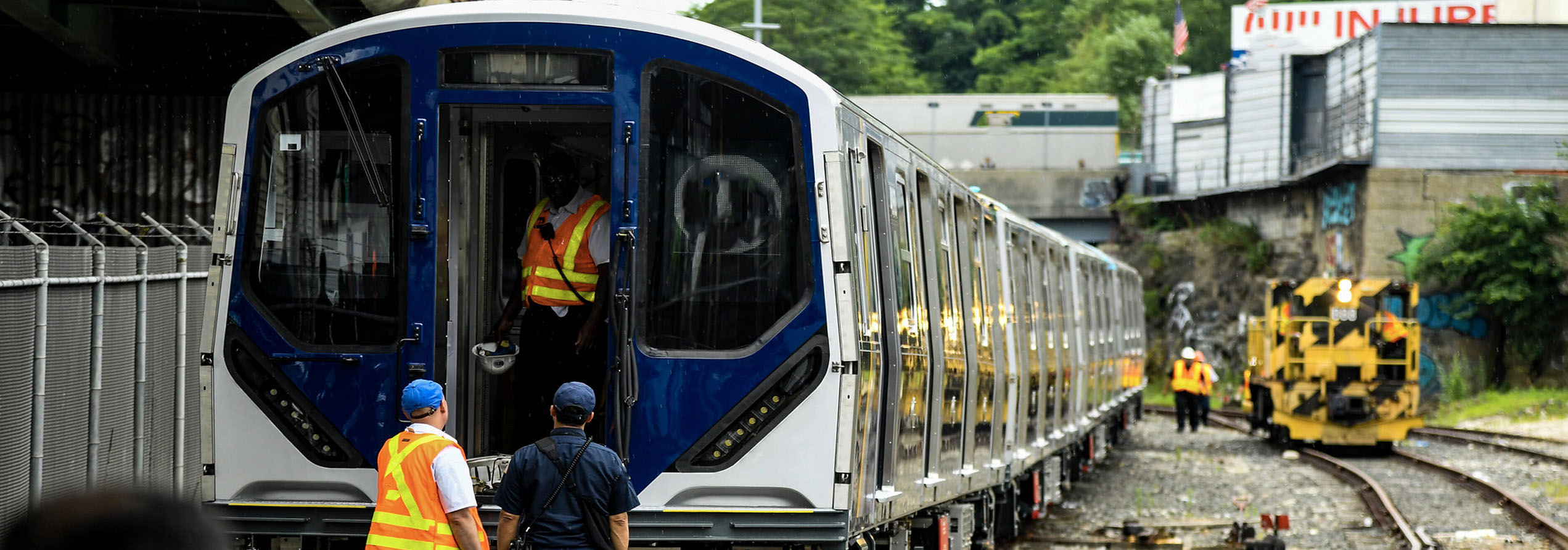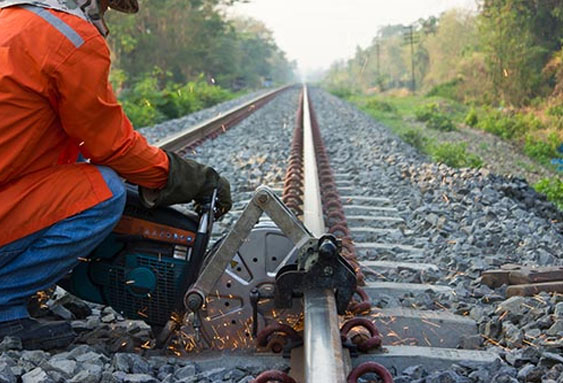
NJ Federal Employers’ Liability Act Claims Lawyers (FELA)
New Jersey (FELA) Claims Attorneys – Railway workers face difficult and hazardous occupations. The Federal Employers’ Liability Act (FELA), which was passed to provide compensation for railroad employees on federal railroads that cross state lines who are injured on the job and workers who are diagnosed with occupational diseases like lung cancer or mesothelioma from asbestos exposure, may be used to file an injury claim when a railroad worker suffers an injury at work. According to the rules of the legislation, the employee may file a claim for damages against any party found responsible for carelessness or misconduct, including his or her employer and the equipment manufacturer if the latter is determined to have made dangerous or substandard equipment.
You need to speak with a NJ FELA railroad injury lawyer on the Injury Team at the Wilentz law firm, if you are a railroad worker protected by the FELA who was hurt on the job in New Jersey or if you live in New Jersey. Our attorneys are some of the most skilled FELA trial lawyers in the state of New Jersey. Our NJ FELA claim lawyers comprehend the challenges of bringing a winning NJ personal injury lawsuit.
The Federal Employers’ Liability Act covers injured railroad employees (FELA). They are NOT automatically entitled to collect damages, nor are they covered by workers’ compensation. Instead, injured railroad workers must demonstrate that the railroad was careless in failing to provide a work environment that was reasonably safe and/or the necessary tools for the job. A railroad employee has three years from the time they feel they experienced an injury at work to file a FELA claim, according to the legislation. There should never be an excuse for delaying the filing of FELA claims and doing so far in advance of the statute of limitations.employees

The railroads are required under FELA to give their employees safe workplaces. Their tools, equipment, and working conditions are also covered by this obligation. The railroad is liable to the injured worker for any losses sustained if it neglects to provide these safety precautions or if an employee is hurt as a result of another employee’s negligence.
Railroad companies are skilled at fighting FELA lawsuits. To reduce their responsibility in a claim for a railroad worker’s injury, they frequently use teams of skilled claims investigators, safety officers, and lawyers. If you decided to deal with the railroad company’s claim agent directly, you might be presented with a settlement by the agent who has a financial incentive to give you the smallest payment possible. While the claims agent will want you to think that your interests are being taken into account, there is actually a conflict of interest because the claims agent cannot serve your best interests and the interests of the R&R company.
Prompt Reporting and Legal Counsel: Railroad Fault or Lack of Fault – You must notify your manager right away of any work-related injury, together with the circumstances surrounding it, in accordance with the safety regulations set forth by your railroad employer. It is crucial that you explicitly attribute the railroad’s action or inaction as the accident’s cause in your opening statement. It is equally important that you make it obvious that you followed all applicable safety regulations at all times, used necessary caution, and that neither your action nor inaction contributed to the development of your injury. Finding the most experienced attorney is crucial because there is no cap on the amount that railroad employees may be able to collect under FELA statutes. Attorney John Anzalone has the experience, verdicts and expert legal team behind him to fight for the compensation you and your family deserve for your injuries.
What Types of on-the-job Accident injuries Do railroad Workers Suffer?
The following are some sample examples of injuries Rail workers could encounter :
- Electrical contact injuries
- Traumatic brain injuries
- Bone fractures
- Toxic Exposure
- Traumatic amputation
- Burn injuries
- Crush injuries
- Spinal cord injuries
- Death
Occupational diseases for railroad workers might include:
- Mesothelioma
- Lung cancers
- Hodgkin’s disease
- Melanoma
- Repetitive stress
- Hearing loss
- Lead poisoning
- Leukemia
- Asbestosis
Giovanni Anzalone | FELA Claims Attorney
FELA lawyer, John Anzalone has represented countless complex FELA claims against major railroads like New Jersey Transit, Port Authority Trans-Hudson Corp. (PATH), New York New Jersey Rail, & Amtrak. Call 732.366.5120 today.
Occupational diseases for railroad workers
The railroad sector is still rated as one of the most hazardous in the nation today. Yet, not all railroad-related fatalities and injuries are brought on by derailments, accidents, or other traumatic events. Many toxic materials and compounds that train workers are exposed to on the job cause hundreds of them to develop lung-related ailments each year. Many lung disorders and illnesses are frequently brought on by years of repeated, unprotected exposure to asbestos, chemicals, PCBs, diesel fumes, train dust and dust particles, cleaning agents, and various other toxic substances. These conditions can be crippling, progressive, and frequently incurable.
Where any officer, agent, or worker of the railroad fails to provide the proper warnings, comply with an industrial hygiene program, or provide the proper respiratory protection equipment and the workers’ injuries were caused, even in part, by that failure, the railroad is held accountable. Additionally, railroads are held accountable for worker injuries brought on by flaws in the track, roadbed, cars, engines, appliances, machinery, or other roadside equipment. The railroads have violated the law by failing to either provide a workplace free from asbestos, PCBs, diesel fumes, or other harmful lung irritants, or by failing to provide adequate warning, an adequate industrial hygiene program, or suitable personal protective training and equipment, such as respirators. As a result, the railroads are accountable for lung-related injuries sustained by workers as a result of their exposure to the aforementioned pulmonary irritants.
Pulmonary Illnesses: X-Rays and Pulmonary Function Tests
If you have experienced shortness of breath, coughing, fatigue, frequent head and/or chest colds as a result of exposure to asbestos, diesel fumes, silica, metals, solvents, and other pulmonary irritants during your railroad work, you should make an immediate appointment with your primary care physician and request chest x-rays (PA and lateral) and Pulmonary Function Tests (PFTs). Please get in touch with our knowledgeable FELA attorneys as soon as your primary care physician or the doctor/pulmonologist detects any anomalies so that we can act quickly to defend your rights.
Injured on the Railroad? We Can Help!
Federal Employers' Liability Act Attorneys Contact Us Today for a Free Consultation
The Injury Team’s Federal Employers’ Liability Act (FELA) attorneys have decades of experience in all forms of FELA injury claims throughout Newark, Perth Amboy, Toms River, Lakewood and all cities throughout NJ. Our FELA attorneys will contentiously champion for the rights of injured railroad workers in FELA cases. If you’re a railroad worker in New Jersey or were working in New Jersey when you were injured as a result of unsafe railroad work environment, contact us today for a free consultation or if you have questions about the law or your injury, please phone us directly at 732.366.5120. Or, if you prefer to complete our free case evaluation form, our client relations representative will contact you as soon as practicable.
Results achieved in prior matters are not meant to be a guarantee of success as the facts and legal circumstances vary from matter to matter.

